Francis Robinson on ‘The Arabs’
What lessons can the West learn by examining the history of the Arab experience through the voices and eyes of Arabs themselves?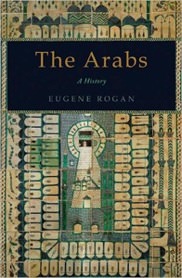
This review originally appeared in The TLS, whose website is www.the-tls.co.uk, and is reposted with permission.
“It is not pleasant being Arab these days”, declared Samir Kassir, a Lebanese intellectual and supporter of Rafiq Hariri, after the Prime Minister was assassinated in Beirut on February 14, 2005. Just over three months later, as if to make the point, Kassir was blown up in his Alfa Romeo. Eugene Rogan tells this story early on in his excellent book, setting its tone in two ways: it is about the Arabs in recent centuries when they had lost control of their history; it is also a story told not, for the most part, out of the archives of Western governments but by Arab voices; Rogan believes that Westerners might view Arab history differently if they saw it through Arab eyes. So Rogan’s history begins not, as some notable histories of the past, for instance, those of Philip Hitti, Bernard Lewis and Albert Hourani, with the birth of the Prophet Muhammad and the five centuries of glory that followed—the time when, in Hitti’s words, “around the name of the Arabs gleams that halo which belongs to world-conquerors”—but with the Ottoman conquest of Mamluk Egypt, and subsequently the rest of the Arab world, from 1517.
Ottoman rule did not change much, and therefore did not bring home the full meaning of the loss of power. The Ottomans ruled, as most empires do, in collaboration with local elites, and it is arguable that the process changed the empire more than it did Arab lives. The ambitions of some notables could come to clash with those of the empire, as did those of the Saudis of central Arabia, and their religiously puritan Wahhabi allies, who in 1802 drove northwards into Iraq, sacking the Shia shrine city of Karbala, and then in 1806 did yet further damage to Ottoman legitimacy by annexing the holy cities of Mecca and Medina. Arab life under Ottoman rule in the pre-industrial era was not that harsh.
All this changed as the West began to engage with the Arab world in the nineteenth century. North Africa bore the brunt initially. The starting point was Napoleon’s invasion of Egypt in 1798 when for three years the French spoke the language of Enlightenment ideals to a bemused local population, until they were chased away by the British. But the beginning of a truly bitter engagement began when in 1830 the French invaded Algeria, seeking satisfaction after its Dey had hit their consul with a fly whisk. The war of conquest lasted seventeen years, left more than 100,000 Algerian civilians dead, and was accompanied by a major programme of French colonization.
Growing awareness of European power led to programmes of self-strengthening. The most impressive was that led by Muhammad Ali and his descendants in Egypt. Ali, an Ottoman officer, rose to power in the disturbed conditions following Napoleon’s departure from Egypt. He began a process of technological and industrial innovation, and most importantly developed a peasant army after the French model, which was able both to suppress the Wahhabis in Arabia and win victories over Ottoman armies as far north as Anatolia. His successors tried to develop the economy further by making concessions to Western business, of which the Suez Canal, built by a French company, was the greatest. The problem was that the costs of selfstrengthening made these Arab regimes bankrupt, placing them in the hands of European bankers. The last thirty years before the First World War saw the European powers partitioning the Arab lands of North Africa among themselves, the French adding Tunisia (1881) and Morocco (1912) to Algeria, the Italians taking Libya (1912), and the British Egypt (1882), where the Suez Canal had become a vital imperial lifeline.
Events, during and immediately after the First World War, suggested that Arab fortunes might be about to change. British and Arab forces united to drive out the Ottomans. In 1918, the British and French announced their support for the creation of national governments in Arab lands through a process of “self-determination”. This was in the context, moreover, of President Wilson’s Fourteen Points, of which the twelfth assured the Arabs of “an absolutely unmolested opportunity of autonomous development”. There were high hopes of a brave new Arab world. Then the French and the British, following their secret wartime Sykes-Picot agreement, decided that their imperial interests were more important than Arab freedom. In 1920, French colonial troops, many of them North African Arabs, drove the Arab nationalists out of Damascus, and so after they had been dressed up with the decency of mandates Syria and the Lebanon were added to the French possessions in North Africa. In the same year, the British used 100,000 of their colonial troops to squash a national uprising in Iraq. This Arab land as a mandate, along with Transjordan and Palestine, was added to the British Empire. “The Arabs”, Rogan reminds us, “were never reconciled to this fundamental injustice.” It is a recurring theme in the speeches of Osama bin Laden.The Arabs’ experience of European empire between the World Wars only gave them further reasons for bitterness. In 1925, for instance, the French, in trying to impose their will on Damascus, shelled the city for three days, killing 1,500 people and destroying many of the city’s finest houses. The British found themselves in a totally hopeless situation in Palestine, where they had undertaken in their mandate to support the development of a Jewish homeland without interfering with the rights of the Palestinians. Eventually the contradictions of this arrangement led to the Arab revolt of 1937-9, which the British suppressed so ruthlessly that 10 per cent of the adult males were either killed, wounded, imprisoned or exiled.
The Nazi genocide of the Jews in Europe gave an extra push to the Zionist cause and the emergence of Israel out of the mandate in Palestine, a process known to the Arabs as al-Nakba, the disaster. In 1947, the Palestinians numbered 1.2 million as compared with 600,000 Jews; they owned 94 per cent of the land. It was not surprising that they rejected the UN partition resolution which gave them only half of their country. There followed a war between the Palestinians and the Jews, which saw 200,000-300,000 Palestinians driven, one way or another, from their homes.
After the British left in 1948, war between the surrounding Arab states and the Zionists left Israel established with 78 per cent of the original mandate territory and 750,000 Palestinian refugees. Immediately, the defeat sparked coups, assassinations and a revolution in the four Arab states surrounding Israel. It also meant the end of serious British influence in the region. The legacy was an enduring Arab sense of injustice.
The background of the Palestine disaster, and the long history of Arab impotence, helps to explain the fervour which met the Egyptian revolution of 1952 and the subsequent rise of Nasser as the hero of the Arab world. His defiance of the British, culminating in his successful resistance to what the Arabs call the “Tripartite Aggression” but the British call the “Suez Crisis”, cemented his position. Nasser’s prominence came to a peak when the United Arab Republic was formed in 1958 from the union of Egypt and Syria, which sent shockwaves through Arab capitals.
“For one brief heady moment”, Rogan tells us, “it looked as though the Arab world might break the cycle of foreign domination that had marked the Ottoman, imperial and Cold War eras to enjoy an age of true independence.”
But, as so often in modern Arab affairs, it was a false dawn. In 1961, the United Arab Republic broke up. Nasser had been warned by a former Syrian president that Syrians were difficult to govern: “fifty percent… consider themselves leaders, twenty-five percent prophets, and ten percent imagine they are God”. And so it proved. As Arab states took sides in the Cold War during the 1960s, dreams of Arab unity faded.
Arab troubles continued. In 1962, Algerian independence was won from France, but only at the cost of a million Algerian lives. Then there was the disaster, termed by Nasser al-Naksa, “the reversal”, of the comprehensive defeat of Syria, Jordan and Egypt by Israel in the Six Day War of 1967. Control of the West Bank, the last significant piece of former mandate Palestine, which might form a Palestinian state, was lost to Israel. The Palestinians now realized that they could no longer rely on Arab rulers to promote their interests, but must take their fate in their own hands. This era of Arab hope was brought to an end by the death of Nasser in 1970, which produced an extraordinary outpouring of grief, in which Arabs certainly wept for “the Lion”, but also for themselves.
The 1970s saw two new players make a major impression on Arab politics. The first was oil. By this time, the Arab states were the dominant producers in the world. This was a mixed blessing. On the one hand, oil wealth made them vulnerable and distorted development, but on the other hand it gave them, if they operated in unison, a weapon. The power of this weapon was demonstrated in the Yom Kippur War of 1973, when Arab action to quadruple the price of oil put pressure on Western governments to try to end the war while Egypt still had military gains. Not all Arabs regarded Anwar Sadat of Egypt’s military campaign as a success, but more had been achieved than ever before by Arab arms against Israel; the Egyptians recaptured the east bank of the Canal and the Syrians a piece of the Golan Heights.
The second new player was Islam. Arabs had been preparing for its political role from the foundation of the (Islamist) Muslim Brotherhood in the 1920s. The decline of Arab nationalism created the vacuum into which it was able to insert itself. The Iranian Revolution of 1978-9, in which Islamist forces helped to topple an American-backed autocrat, sent a powerful signal. This was followed in November 1979 by the capture of the Great Mosque in Mecca by Islamist forces which threatened the Saudi state; in October 1981 by the assassination of President Sadat by a splinter group of the Muslim Brotherhood; and in 1981-2 by a brutal war between the Muslim Brotherhood and the government of Hafiz al-Asad in Syria. The Israeli invasion of Lebanon in 1982, to drive out the PLO, created the conditions for the emergence of the Shia Islamist party, Hizbullah—a much more determined enemy. Through the 1980s, the Afghan jihad against the Russians, in which many Arabs participated, exercised a considerable influence; many jihadis returned determined to fashion an ideal Islamic order in their countries.December 1987 saw the beginning of the first Palestinian intifada against Israel, in which over one year 626 Palestinians were killed, 37,000 injured and 35,000 imprisoned.
In this context, Hamas, the Islamic Resistance Movement, emerged out of the Muslim Brotherhood and quickly showed itself to be better organized and less corrupt than the secular PLO. By now Islamist values were coming to be expressed in Arab public space, which had once been strikingly secular, as young men wore beards and young women headscarves.
The end of the Cold War created a new context for Arab lives: but not a better one. The US was now the hegemonic power in Arab lands. Arabs quickly discovered what this meant when Saddam Hussein’s occupation of Kuwait in 1990 was met by an assault on Iraq by the USA and its allies which left thousands of civilians dead. Arab states were evenly divided over the action, but for most ordinary Arabs it was another example of heartless Western imperialism. Their views were not changed by the Anglo-American invasion of Iraq of 2003, which was undertaken for specious reasons and which by 2009, according to the Iraqi government, had led to 150,000 civilian deaths.
American hegemony also meant that its client, Israel, seemed to have a freer hand to bring misery to its Arab neighbours. In 1996, in the context of Hizbullah attacks on Israeli positions in southern Lebanon and missile attacks on northern Israel, Israel launched its Grapes of Wrath operation, which left 400,000 Lebanese displaced and much infrastructure destroyed. In 2006, Israel, irritated by a Hizbullah raid across its northern frontier, attacked again, destroying much of South Beirut, more infrastructure, and leaving a million Lebanese displaced. In January 2009, after a six-month ceasefire had led to no relaxation of Israel’s control over Gaza’s frontier, Hamas began to fire rockets. Israel responded with a two-week assault on this densely populated enclave, targeting UN agencies, hospitals, schools and residential areas. An estimated $1.4 billion of damage was inflicted, 1,300 Palestinians were killed, and 5,100 wounded. There were thirteen Israeli dead and eight wounded.
Let us repeat Samir Kassir’s words: “it’s not pleasant being Arab these days”. By their actions, moreover, the West and its clients have shown themselves largely indifferent to Arab suffering. It is hardly surprising that Arabs, and Muslims elsewhere in the world, danced in the streets at the news of the 9/11 assault on the USA. As little has changed since 2001, it is to be expected that, if there were a similar assault today, the Arab response would be much the same.
Eugene Rogan has written an authoritative and wide-ranging history. The text is easy to read, with useful summaries at the end of each chapter. Moreover, distinctive Arab voices make themselves heard, whether it be a Damascus barber commenting on the weakening of Ottoman authority, an Egyptian scholar noting the injustice of the British response to the Dinshaway incident, or the courageous resistance of Fatiha Bouhired and her twenty-two-year-old niece, Djamila, in the Battle of Algiers.
Furthermore, in a context where partisanship is the norm, Rogan is even-handed. Yes, we are told about the unprovoked attack by Jewish forces on the Arab village of Dayr Yasin on April 9, 1948, which left 250 villagers dead. But this is immediately balanced by an account of a Palestinian attack on a Jewish medical convoy in Jerusalem in which seventy-six Jews were killed. Rogan is meticulous in giving the numbers of Arabs killed and wounded by Western and Israeli action in Arab lands. But he also makes clear the brutal ways of the Arabs with each other: Hafiz al-Asad’s levelling of the city of Hama as he tried to suppress the Muslim Brotherhood, Saddam Hussein’s ruthless action against the Shias who rose against him after the first Gulf War, and the 100,000-200,000 killed in the fifteen years of Lebanon’s civil war.
There is a school of thought which argues that, if Arabs have had a miserable time in recent centuries, it is largely their fault. There may be some truth in this. But Rogan makes it clear that the West has much to answer for. He also makes it clear that Arab societies, as opposed to their rulers, are increasingly finding the answer to their problems in political Islam. “In a free and fair election in the Arab world today”, he declares, “I believe the Islamists would win hands down.”
© Copyright of the Newspaper Licensing Agency
|
Francis Robinson is Professor of the History of South Asia, Royal Holloway, University of London; visiting professor, Faculty of History, University of Oxford; and Fellow of the Oxford Centre for Islamic Studies. His publications include “Islam and Muslim History in South Asia” and “The Ulama of Farangi Mahall and Islamic Culture in South Asia.” |
Independent journalism is under threat and overshadowed by heavily funded mainstream media.
You can help level the playing field. Become a member.
Your tax-deductible contribution keeps us digging beneath the headlines to give you thought-provoking, investigative reporting and analysis that unearths what's really happening- without compromise.
Give today to support our courageous, independent journalists.

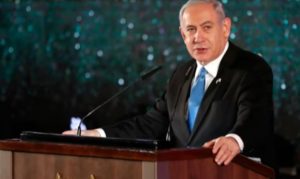
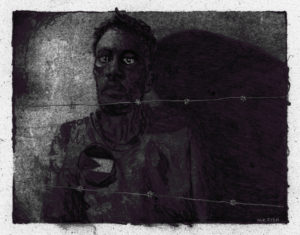
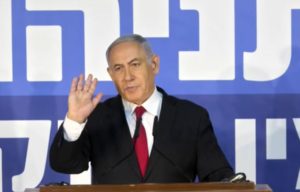

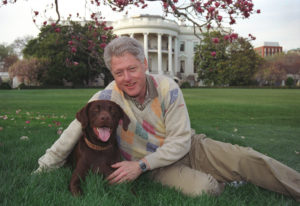
You need to be a supporter to comment.
There are currently no responses to this article.
Be the first to respond.